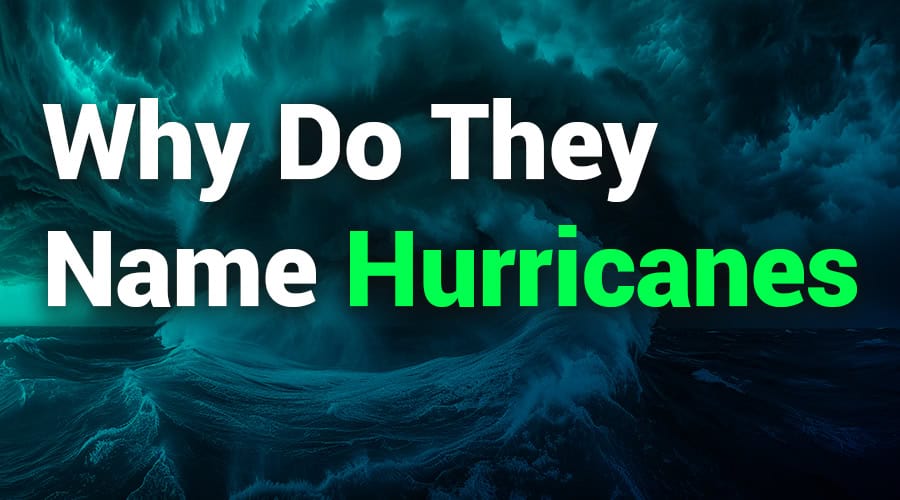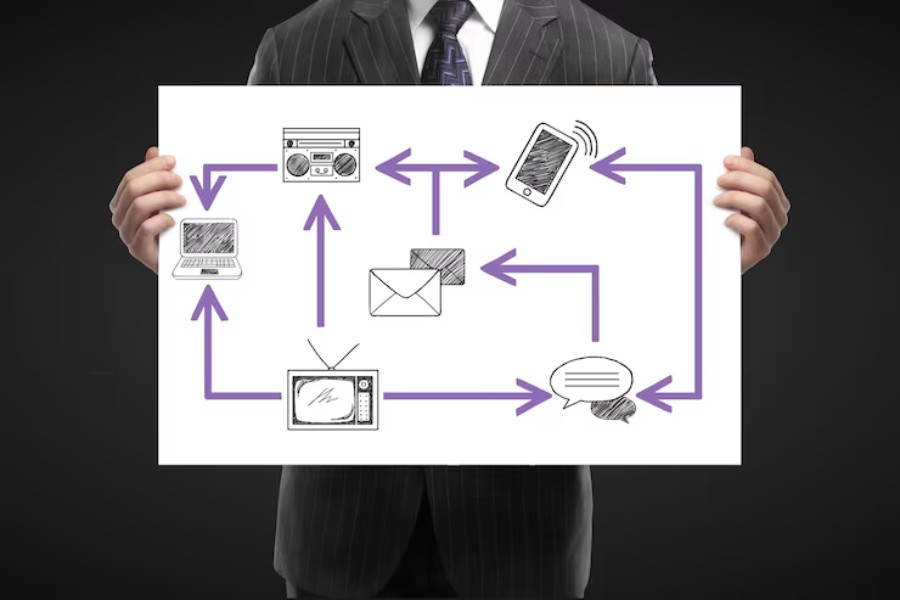
Where hurricanes impact millions, the question “Why do they name hurricanes?” is often asked. Naming hurricanes is a tradition that dates back over a century, evolving from nameless tropical storms to the systematic naming conventions we recognize today. Understanding why we name hurricanes involves examining history, safety, meteorology, and cultural factors. This article will explore the “why” behind hurricane naming, providing insight into the names’ origins and how they aid in managing and preparing for storm impacts. You’ll better appreciate why these powerful natural phenomena carry human names by the end.
Why Do they name hurricanes?
Naming hurricanes helps improve communication, public safety, and awareness. Initially, names made tracking easier. Today, it helps people better identify and respond to storms. Instead of confusing geographic coordinates, a name creates an identifiable reference, aiding public warnings and emergency responses.
History and Evolution of Hurricane Naming
The origins of hurricane naming, tracing it from the early days of unnamed storms to today’s organized lists.
Naming hurricanes dates back to the early 20th century when scientists and meteorologists noticed the need for a practical system to communicate storm warnings. Before official names, people referred to storms by dates or geographic coordinates, creating confusion. In the 1950s, the United States adopted a systematic naming convention for Atlantic storms, using female names first and later incorporating male names. Over time, hurricane naming became a global practice coordinated by the World Meteorological Organization (WMO). This organization manages six-year rotating lists of names for different regions, promoting universal understanding and improving storm communication.
Today, these names provide an efficient, memorable way to discuss hurricanes, ensuring clear communication across diverse audiences. From historical roots to modern practices, the evolution of hurricane naming highlights how human ingenuity meets the need for clarity amidst nature’s chaos.
Purposes and Benefits
Enhancing Public Safety
Hurricane names play a crucial role in enhancing public safety. By providing a distinct, memorable name, meteorologists and authorities can quickly disseminate warnings, making it easier for communities to recognize and prepare for impending dangers.
Improving Communication Across Borders
Since hurricanes often cross international boundaries, consistent naming helps foster communication between countries. For example, a hurricane affecting the Caribbean, the U.S., and Canada can be identified by the same name, preventing confusion and coordinating international responses.
Simplifying Tracking and Research
A unique name allows meteorologists to log detailed storm data, supporting future research. This historical tracking helps scientists analyze patterns and improve future forecasting.
Reducing Miscommunication During Emergencies
Without a name, people could confuse storms with each other, especially during active seasons with multiple storms. Names provide clear reference points, reducing potential misunderstandings and aiding in emergency preparedness.
The Process Behind Naming Hurricanes: How Does It Work?
Who Decides on Hurricane Names?
A designated committee within the WMO creates and updates the list of hurricane names. Names rotate every six years and are retired if associated with particularly destructive storms.
What Criteria Are Used in Naming?
Names need to be culturally neutral, easy to pronounce, and should not overlap with recent catastrophic storms. Each region has its list, ensuring a smooth global process for storm identification.
How Are Names Chosen for Specific Hurricanes?
When a tropical storm reaches a certain intensity, the pre-assigned name is given, helping weather agencies keep track of storms without reinventing the naming process mid-season.
Why Do Some Hurricanes Share Names Over Time?
Reusing names saves time, but if a hurricane leaves significant destruction, its name is retired as a mark of respect, preventing confusion and ensuring sensitivity.
The Role of Naming in Emergency Response
Names simplify communication for rescue teams, the media, and the public, allowing faster dissemination of warnings and evacuation notices, which is essential in minimizing hurricane-related harm.
Why the Naming System Matters in a Changing Climate?
We’ll delve into the importance of hurricane naming in the context of climate change.
As climate change influences weather patterns, hurricanes are becoming more frequent and severe. This shift makes effective hurricane naming even more vital. The naming system provides a framework for tracking increased storm activity and raises public awareness about these growing risks. Each name embodies a storm’s journey, reminding us of the realities of climate change. For scientists and policymakers, tracking named storms offers data on frequency, intensity, and changing storm paths, helping craft responses that mitigate future climate impacts. Naming hurricanes is not just a formality; it’s part of adapting to and understanding our changing world.
Public Response to Hurricane Names
The Psychology of Hurricane Names
Names can create a sense of urgency or familiarity. Studies show that named hurricanes elicit stronger public reactions, making people more likely to heed warnings and take preventive actions.
Controversies and Criticisms
Some have criticized hurricane naming conventions. Some argue that names can create false perceptions, such as underestimating a storm’s strength based on a “soft” name. Despite these critiques, names remain valuable for their clarity and familiarity.
The Role of Media in Hurricane Naming
The media’s role in communicating named hurricanes is substantial. A named storm gets more coverage, capturing public attention and encouraging communities to prepare, illustrating the powerful interplay between media and naming conventions.
Why Do Names Help in Communicating Hurricane Warnings and Updates?
Naming hurricanes significantly improves communication, making storm updates clearer, more consistent, and more accessible to the public. Here’s why it matters:
Simplified Messaging for Public Understanding: Naming hurricanes removes the complexity of technical coordinates or storm numbers. A name like “Hurricane Laura” is easy for people to remember, allowing emergency agencies to deliver swift, direct warnings that are easy to understand and act upon.
Consistency Across Regions and International Tracking: Hurricanes often cross borders, affecting multiple countries. Using a single name allows emergency response teams from different regions to coordinate effectively, ensuring everyone follows the same updates and is prepared for the storm’s arrival.
Enhanced Media Reporting and Public Awareness: Named hurricanes streamline media reporting, allowing journalists to quickly communicate critical information on the storm’s path, impact, and safety tips. This clarity keeps the public informed, boosting vigilance and preparedness as the hurricane progresses.
Bottom Line
Hurricane naming is a practice deeply rooted in necessity. As we grapple with the increasing frequency of storms due to climate change, naming becomes a communication tool and a critical part of our collective response to nature’s fury. It allows us to track, understand, and remember these weather phenomena, while names of retired storms remind us of past impacts. Naming hurricanes gives structure to an unpredictable natural world, fostering community safety and preparedness.
FAQ’s
Q. Why do we use human names for hurricanes?
A. Human names are easier to remember and communicate than technical identifiers, enhancing public safety.
Q. Who decides hurricane names?
A. The World Meteorological Organization oversees hurricane naming, using a rotating list for each ocean basin.
Q. Can the same hurricane name be used twice?
A. Names can be reused unless the storm was deadly or costly, in which case they are retired.
Q. What happens if we run out of hurricane names?
A. Additional names from a secondary list or alternate language system are used if the set list is exhausted.
Q. How does a hurricane name get retired?
A. If a storm causes severe damage or loss of life, its name is retired to honor affected communities and prevent confusion.






